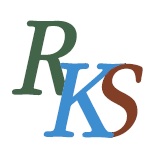10권 4호
초록
Abstract
This study aims to present the whole progress of shipbuilding industry promotion of the Rhee Syngman administration. In addition, the meaning of the promotion is examined in a viewpoint of historical industrial policies, in terms of periods of Japanese occupation and the Park Chung Hee administration. The policy for promotion of shipbuilding industry in the Rhee Syngman administration focused primarily on planned shipbuilding operations and expansion of shipbuilding yards. The planned shipbuilding was an imitation of Japan’s ‘wartime planned shipbuilding system’ during the Pacific War. The social backgrounds and systemic motives between the two periods were similar in that both of them needed a lot of ship building in a short period of time. However, the Rhee Syngman administration’s expansion policy for planned shipbuilding and shipbuilding industry was not promoted as they had expected and intended. This is primarily due to the fact that they did not grasp the reality of the situation of the shipbuilding industry at the time and failed to establish effective communication lines between buyers and providers. Furthermore, they never succeeded in acquiring the necessary finances for the project. Although it was a government-managed business, the Rhee Syngman administration strongly objected the US financing policy. However, in terms of industry-historical meaning, related with the situations of the Japanese occupation and the Park Chung Hee administration, the significance of the industrial policy cannot be ignored. The promotion policy of the Rhee Syngman administration was a continuity of Japan’s by nature in that it took advantage of Japanese-run shipbuilding yards, as well as the Japanese system of wartime industry as a wartime planned shipbuilding. This served as the foundation of the promotion policy of the shipbuilding industry during the Park Chung Hee administration. The basic frameof the administration’s policies was closely related to the shipbuilding industry, and this policy frame was maintained in successive administrations

